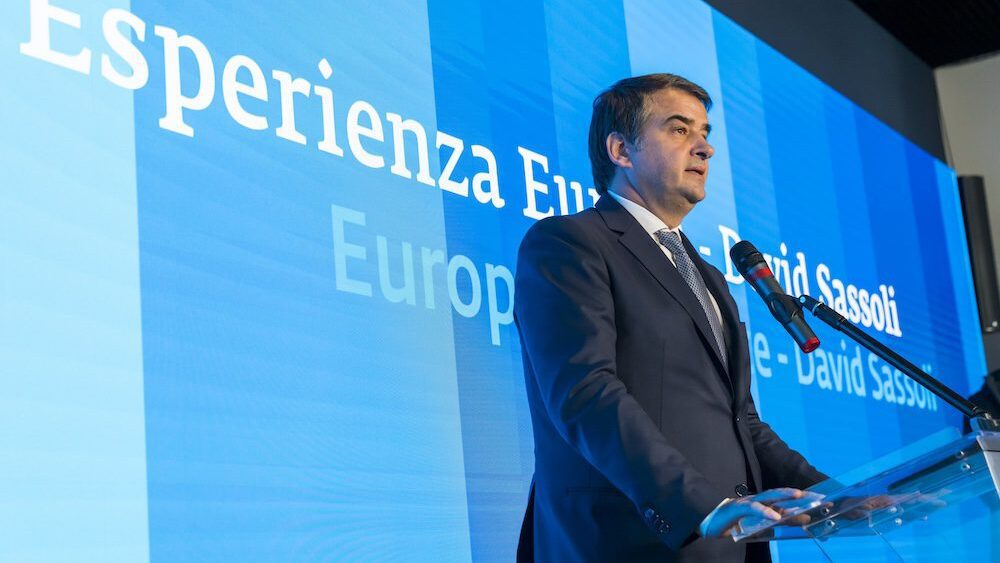
Raffaele Fitto, Italy’s EU Commissioner candidate.
Photo: Daina Le Lardic / @ European Union 2023 – Source: EP
Last-minute negotiations between Italian PM Giorgia Meloni and European Commission President Ursula von der Leyen seem to have ended in a surprising success for the former. Von der Leyen is on course to grant Italy an executive vice presidency in her next cabinet—despite the fact that Meloni’s European Conservatives and Reformists (ECR) group is not part of the European Parliament’s ruling majority, the so-called ‘Ursula coalition.’
The news is not yet officially confirmed, as the president-elect still has a few weeks to distribute all the posts and portfolios among her 26 commissioner candidates. But according to MEP Fulvio Martusciello—the head of one of Meloni’s two coalition partners, Forza Italia’s European People’s Party (EPP) delegation in Brussels—the deal could not be more secure.
In the EPP group meeting, group leader [Manfred] Weber announced the strategy of the Commission President, who will have 14 commissioners from the EPP. There will indeed be four executive vice presidents, and one will go to Italy.
“Weber recalled last week’s meeting with [Forza Italia leader Antonio] Tajani and Meloni and emphasized the need for Italy to play a leading role in the next Commission,” Martusciello said on Wednesday, September 4th, adding that the national conservative-led Italy will therefore be a “key player” in the (EPP) centrist-dominated EU executive.
Until now, the Commission had eight vice presidents, including three executive vice presidents who oversee several of the most important portfolios. These three (Green Deal, competition, and trade) were distributed equally among member groups of the previous ‘Ursula coalition,’ with the EPP, the socialist S&D, and the liberal Renew holding one each.
Now, it’s being reported that von der Leyen plans to create a fourth executive VP post, most likely because none of her allies on the left would stomach being stripped of theirs. This is the position that will be given to Italy’s ex-EU affairs minister, Raffaele Fitto, who is set to take charge of the economy portfolio that will include overseeing the implementation of the EU’s post-pandemic Recovery and Resilience Plan.
Giorgia Meloni has been demanding a much more influential post in the Commission ever since the EU elections in June, when her national conservative Fratelli d’Italia became the only ruling party in a major European country with a stronger democratic mandate than before.
While her victory was ignored in Brussels due to her being in the ECR, the ‘losers’ of the election—including Macron’s liberals and Scholz’s socialists—were given the chance to reestablish their coalition and reappoint Ursula von der Leyen as Commission President.
This ‘betrayal’ has driven a serious wedge between von der Leyen and Meloni, who voted against the Commission chief’s reappointment following her failure to promise Meloni an executive VP post in return. However, it seems that wasn’t the end of negotiations, and the solution—the creation of a fourth executive position—has eventually been found.
This marks a significant political success for Italy and the national conservative ECR in Brussels, but there are obvious benefits for von der Leyen’s mainstream forces as well.
With this move, the Commission president successfully prevented Italy (and by extension, the ECR) from firmly taking its place among the conservative opposition groups in Brussels. When united, the three conservative blocs (Patriots, ECR, ESN) would be a formidable force in the Parliament, but this concession to ECR ensures that its recently commenced ‘balancing act’ between the mainstream and the Right continues.
